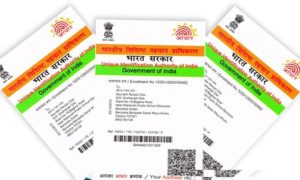Credit card debt management: Credit cards can be helpful tools for managing finances, but only if used wisely. Unfortunately, many people fall into the trap of overspending, leading to mounting credit card bills that become difficult to pay off.
Read More: How to get your Fastag security deposit back online
This cycle of accumulating debt can quickly spiral out of control, particularly if multiple credit cards are involved. Known as the credit card debt cycle, this pattern often results in individuals resorting to loans to cover their escalating debts, creating a vicious cycle of borrowing.
Here are five important tips to help you in quick debt repayment:
Spending wisely: While credit cards offer convenience, using them recklessly can lead to a mountain of debt. Avoid unnecessary purchases and refrain from overspending to prevent accumulating a huge bill by the end of the month.
Understanding the debt cycle: Many individuals find themselves trapped in a cycle of credit card debt.
Read More: SBI Mobile Banking: How To Register On YONO App Via ATM
Each month, the balance adds up, leading to a substantial debt that becomes increasingly difficult to pay off, especially if you have multiple credit cards.
Implementing the debt avalanche strategy: Prioritise paying off debts with the highest interest rates first. By making minimum payments on all debts and allocating extra funds to the highest-interest loan, you can minimise the overall interest burden.
Tackling high-interest debts first: High-interest loans are the most costly in the long run. By paying them off first, you can significantly reduce the total interest paid over time, accelerating your journey to debt freedom.
Read More: 6 Credit Cards With No Joining Fees And Zero Annual Charge: Check Features
Addressing lower interest debts: While it’s essential to focus on high-interest debts initially, don’t neglect lower-interest loans. Once you’ve cleared the highest-interest debt, allocate your resources towards paying off the next highest-interest debt while maintaining minimum payments on others.





































